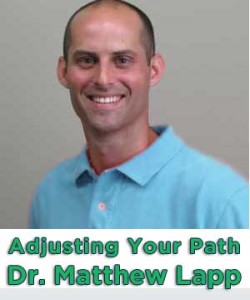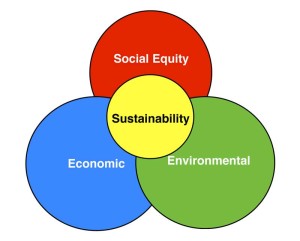It depends on how you look at it, but it can mean many different things
By Dr. Matthew Lapp, Columnist, The Times
 One of the more recent movements to gain momentum in popular culture is the idea of sustainability as a guiding principle. Many businesses, community organizations, and government agencies are beginning to have thoughtful conversations about how to create sustainability or to use sustainable practices in their respective organizations.
One of the more recent movements to gain momentum in popular culture is the idea of sustainability as a guiding principle. Many businesses, community organizations, and government agencies are beginning to have thoughtful conversations about how to create sustainability or to use sustainable practices in their respective organizations.
As with any concept, depending on where you look, the concept of sustainability might be applied in different ways. For example, one cause or organization may be focused on healthcare, one might look more towards urban planning or building, and yet another might be solely focused on the issues surrounding energy usage. The common denominator with all of the these applications is the ability of a system, structure, or agreement to withstand external strains and continue to endure with relatively little input and upkeep over time.
Sometimes referred to as the 3 Eʼs of sustainability, sustainable practices occur at the juxtaposition of environmental impact, social equality, and economic demands.
This means that all three areas must be considered and addressed in order to create a sustainable practice, structure, business, government, policy, etc.
One example is the development of wellness programs among forward-thinking small and large businesses. These businesses have created wellness programs in order to meet the health and happiness needs of their employees. In doing so, they are striving to create systems which allow their employees to thrive in the workplace. Research shows that for every dollar that these businesses invest in such programs, a $3-5 return is generated via reduced costs, increased productivity, and decreased turnover.
Another example is that of energy usage. Many individuals, businesses, and even city planners, have tried to find ways to reduce energy usage by encouraging mass transit, walking, biking, solar collection, and more efficient usage of electronics, lighting, and heating/cooling.
I, for one, believe that sustainability is a concept that is past due itʼs time of recognition. Although considering sustainable practices may not show an overnight transformation, in the long run it makes sense (and cents) because you create a situation that has a much higher likelihood of long-term financial success while promoting healthy relationships both socially and environmentally.
If youʼre new to the concept of sustainability, there are many easy ways to put sustainable practices in place in your every day life. For example, recycling, reusing, or repurposing items is a great way to reduce the burden on the environment, is less costly than buying a new item, and can promote social equality via relationships and community building. Some businesses now use one companyʼs waste to create a new product all together.
A great local example is that of Waste Oil Recyclers in Modena. This company collects used fryer oil from restaurants, schools, and other businesses then cleans it so it can be used as a biofuel source for cars and trucks including those in their own fleet. This company has grown tremendously over the last few years, and is a perfect example of sustainable practices as a business.
There are also a number of organizations you can look to for guidance. The city of Philadelphia has created a goal to be the “Greenest City in the Country,” and has many resources available about how individuals can do their part to make it a reality through the Mayorʼs office of Sustainability for the City of Philadelphia at: www.phila.gov/green.
A newly formed organization in Coatesville with a focus on many aspects of sustainability is www.sustainable19320.org.
I hope youʼll take this opportunity to learn more about this concept because as we move into the future, itʼs only through the usage of sustainable practices in business, in education, in healthcare and through individual pursuits that weʼll have an opportunity to grow and thrive.
Drs. Allison and Matthew Lapp are the owners of Salus Chiropractic Studio in Thorndale. For more information, visit them on the web at http://www.thorndalechiropractor.com/







